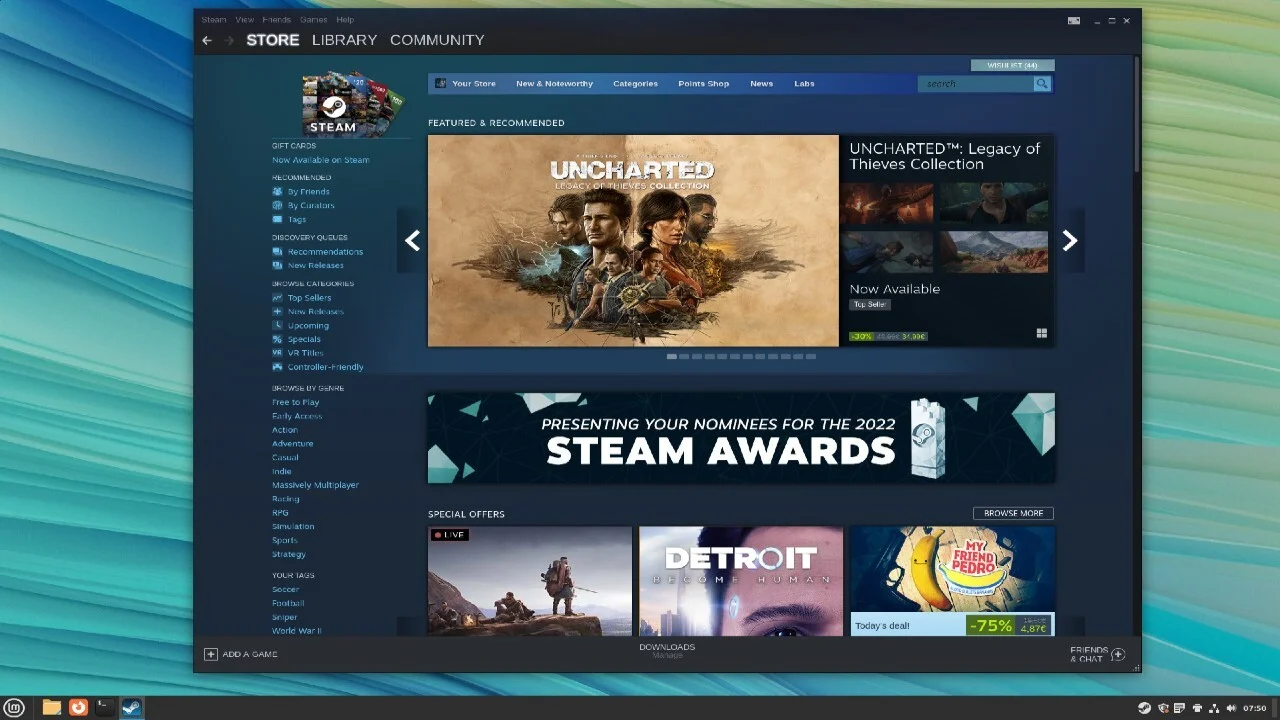Linux Gaming Is Slowly Dying. But Nobody's Willing To Save It.

In 2018, Steam introduced a new beta feature, the Proton client. This client was aimed at Linux users who wanted to play Steam games on their devices, offering an alternative to compatibility tools such as Lutris and Wine.
This became especially relevant with the release of the Steam Deck, which runs a Linux distribution itself. At that point, Linux supported a number of Steam titles. However, that support has slowly been decreasing over time.
This became especially relevant with the release of the Steam Deck, which runs a Linux distribution itself. At that point, Linux supported a number of Steam titles. However, that support has slowly been decreasing over time.
Steam’s Proton client is definitely a step in the right direction, but without Steam dedicating time to maintaining it, Linux users could end up in a worse position than before. What’s the point of introducing a feature if you aren’t interested in keeping it alive?
Steam’s Proton client is known for its issues. Not only are boot times incredibly slow, but game performance consistently worsens over time. This is only exacerbated by the introduction of anti-cheats.

Grand Theft Auto is the latest title to introduce an anti-cheat, which has been anticipated for some time, especially given the cheating problem that has persisted for over half a decade with clients such as Kiddions, Yim Menu, and GTAHax.
Anti-cheats on Linux don’t work well, which means games like Grand Theft Auto, Fortnite, and many others are unplayable. This list of unsupported games will only continue to grow as time goes on.
Due to Linux being incredibly complex in its build, it’s incredibly difficult for developers to support Linux in anti-cheats. This means that more often than not, you are just outright banned from playing that certain section of the game.
This is due to how anti-cheats tend to function at a low level, which requires kernel mode access to detect cheats. However, with Linux, that isn’t possible as it’s programmed completely differently. However, this may not always be the case.
If developers were willing to spare some time to work on the foundational Linux distributions, for example: Ubuntu, Arch Linux, and Fedora, we could see anti-cheat working as it would’ve been trained to search for files in a way that is safe and fair on Linux. However, that’s unlikely to happen.
It’s clear that although Linux has been given compatibility support to run games, no matter how hard we try, it just won’t function the way it’s intended.
Developers need to go that extra mile, which doesn’t seem to be happening, and it won’t for a long time as there’s no incentive to drive Linux forward, especially with how Windows is the standard on many pre-built PCs, which gamers naturally gravitate to. But we can always hope for a better future for Linux gaming.

